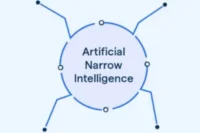AI in Agriculture: Modern Solutions for Smarter Farming
Published: 25 Oct 2025
The foundation of our world is farming. However, farmers face major challenges such as pests, water scarcity, and climate change. This is where the role of AI in agriculture becomes significant. AI is assisting farmers in growing more food, conserving resources, and making better decisions. AI is transforming agriculture, from weather forecasting to the use of intelligent machinery. We’ll look at how AI functions in agriculture, why it matters, and what farming’s future holds in this post.
Why AI in Agriculture is Important
AI’s impact on agriculture is essential for modern farming. It assists farmers in overcoming challenges, including pests, soil problems, and erratic weather. AI improves crop output and lowers costs by offering intelligent solutions for early disease detection, accurate irrigation, and resource efficiency. AI increases farming’s profitability, sustainability, and productivity by providing real-time insights. By providing real-time insights, it increases farming’s profitability, sustainability, and productivity. You can also read about the advantages and disadvantages of AI to better understand how it impacts various industries, including agriculture.
Real-Life Applications of AI in Farming
Every day, the effects of artificial intelligence on agriculture become increasingly apparent and useful on farms. In order to protect plants before significant harm is done, farmers are employing AI-powered drones and cameras to identify pests and crop diseases early. AI-powered smart irrigation systems save resources and boost crop productivity by delivering the appropriate amount of water at the correct time. AI can also forecast weather patterns, which helps farmers better plan for planting, harvesting, and storm protection.
Furthermore, automated devices and robots help with planting, weeding, and harvesting, which saves time and effort. These practical uses show how AI is helping farmers of all sizes become smarter, productive, and efficient.
AI for Small Farmers – Affordable Solutions
The effects of artificial intelligence on agriculture are affordable for small farmers. While inexpensive soil sensors and intelligent irrigation systems help save water and boost output, mobile applications provide them with advice on crop maintenance and insect management. AI chatbots offer immediate guidance on fertilizer and planting, and community platforms enable farmers to exchange resources and expertise. Even on tiny farms, these solutions increase farming’s productivity, efficiency, and intelligence.
Challenges and How to Overcome Them
Although there are many advantages to using AI in agriculture, farmers might face challenges that make adoption challenging. Successful farming requires an understanding of these challenges and how to overcome them.
- High Costs: Advanced AI tools, machines, and sensors can be expensive.
Solution: Governments, NGOs, and agricultural programs can provide subsidies, financial aid, or low-cost alternatives.
- Limited Technical Skills: Some farmers may not know how to operate AI systems or interpret data.
Solution: Training programs, simple mobile apps, and community workshops help farmers learn to use AI effectively.
- Access to Technology: Small or remote farms may lack access to AI devices or internet connectivity.
Solution: Affordable sensors, smart irrigation kits, and shared community platforms provide practical access to AI tools.
- Data Reliability: Inaccurate or incomplete data can reduce AI’s effectiveness.
Solution: To guarantee accurate and useful information, use dependable sensors, satellite imaging, and cloud-based solutions.
To see how AI is also helping doctors and hospitals, check out our post on the role of AI in healthcare — it shows just how wide the impact of artificial intelligence can be.
The Future of AI in Agriculture
The impact of artificial intelligence on agriculture is only going to grow, bringing more innovation and efficiency to farming. Here’s what the future may look like:
|
Farmers will be able to grow more food with fewer resources and adjust to the difficulties of the future thanks to AI’s promise of smarter, more sustainable, and efficient farming.
Conclusion
AI is transforming agriculture by making it more sustainable, intelligent, and efficient. It assists farmers with weather forecasting, crop disease detection, resource optimization, and yield improvement. While there are challenges, reasonably priced tools and training programs make these technologies accessible to all.
Enhance your farm’s productivity and future readiness by implementing AI today with a low-cost sensor, crop monitoring software, or a smart irrigation system. To learn more about AI in farming, visit our website for detailed guides and tips. We’d also love to hear from you and share your thoughts about this article in the comments section below!
FAQs About the Role of AI in Agriculture
Farmers and readers often have questions about how AI can help in agriculture. Here are some common queries with clear answers to guide you:
AI in agriculture refers to using artificial intelligence technologies, like sensors, drones, and software, to make farming smarter, efficient, and more productive.
Small farmers can monitor crops, save money, and boost yields without making significant investments thanks to AI solutions like smartphone apps, inexpensive sensors, and intelligent irrigation systems.
Here are the main benefits of AI in farming are as follow:
- Predicting weather patterns
- Detecting crop diseases early
- Optimizing water, fertilizer, and energy use
- Automating tasks like planting and harvesting
Not necessarily. Affordable tools, mobile apps, and training programs make AI accessible and easy to use, even for beginners.
A smart irrigation system, a crop monitoring app, inexpensive sensors, or community platforms can be used as a starting point.

- Be Respectful
- Stay Relevant
- Stay Positive
- True Feedback
- Encourage Discussion
- Avoid Spamming
- No Fake News
- Don't Copy-Paste
- No Personal Attacks

- Be Respectful
- Stay Relevant
- Stay Positive
- True Feedback
- Encourage Discussion
- Avoid Spamming
- No Fake News
- Don't Copy-Paste
- No Personal Attacks





